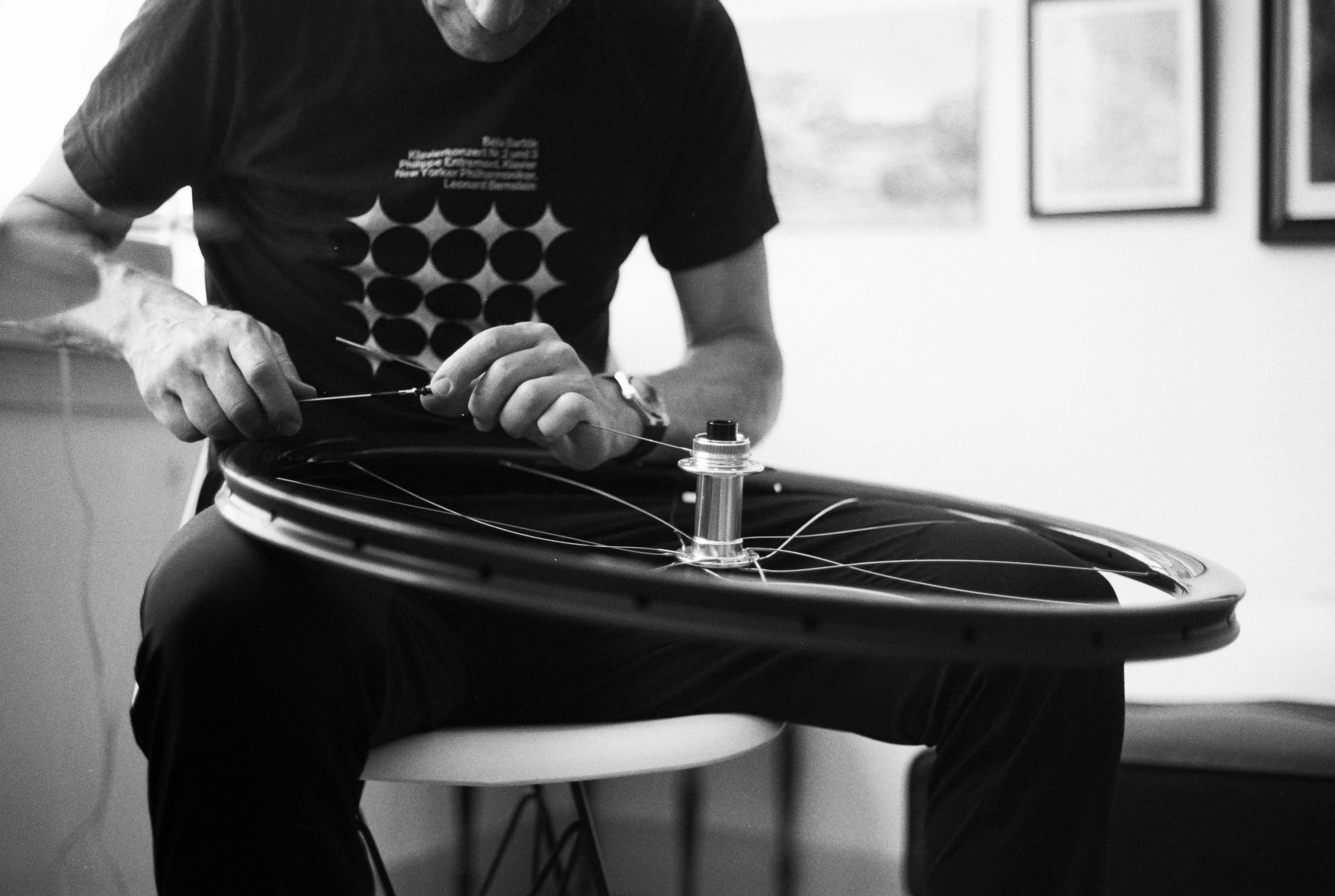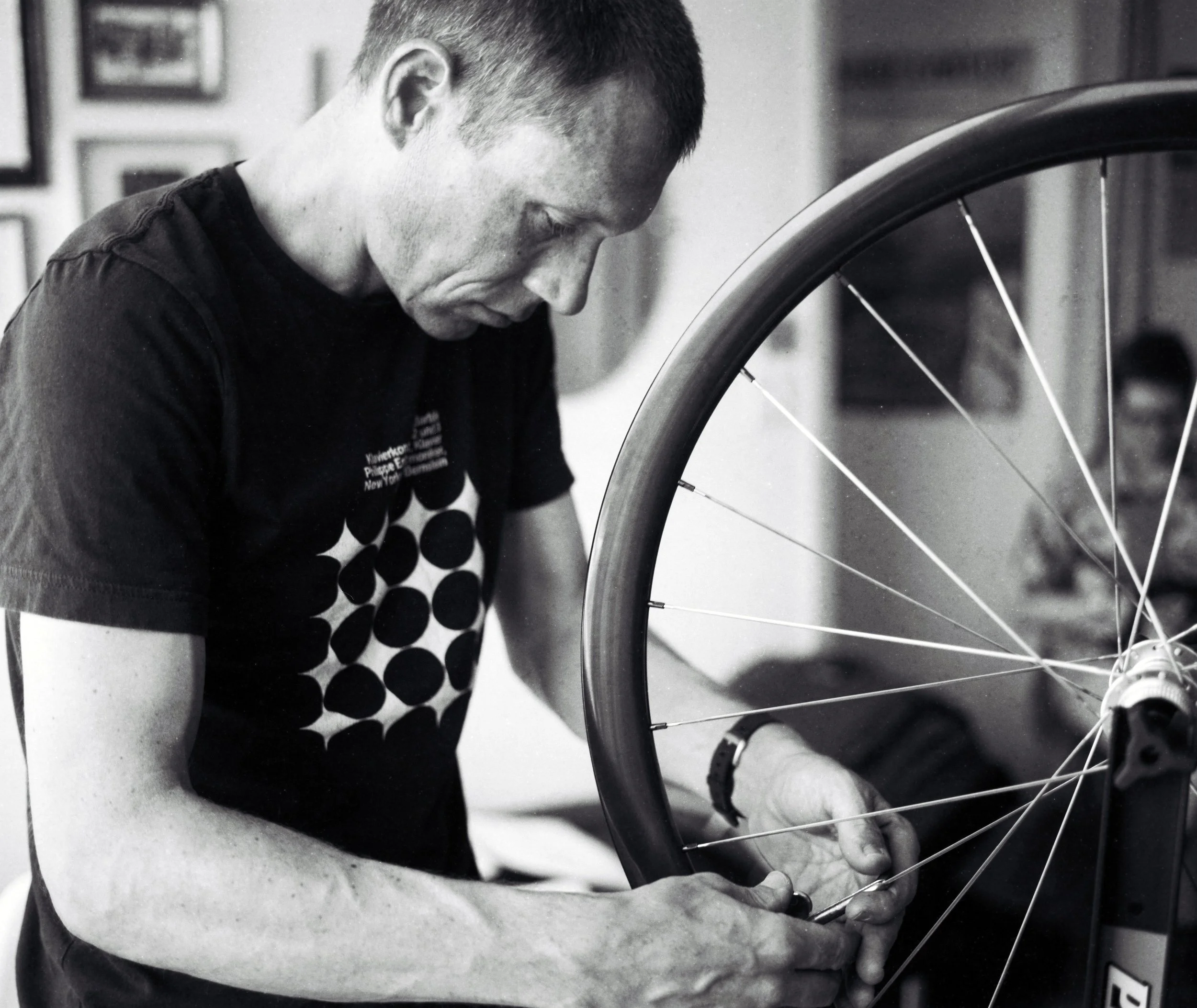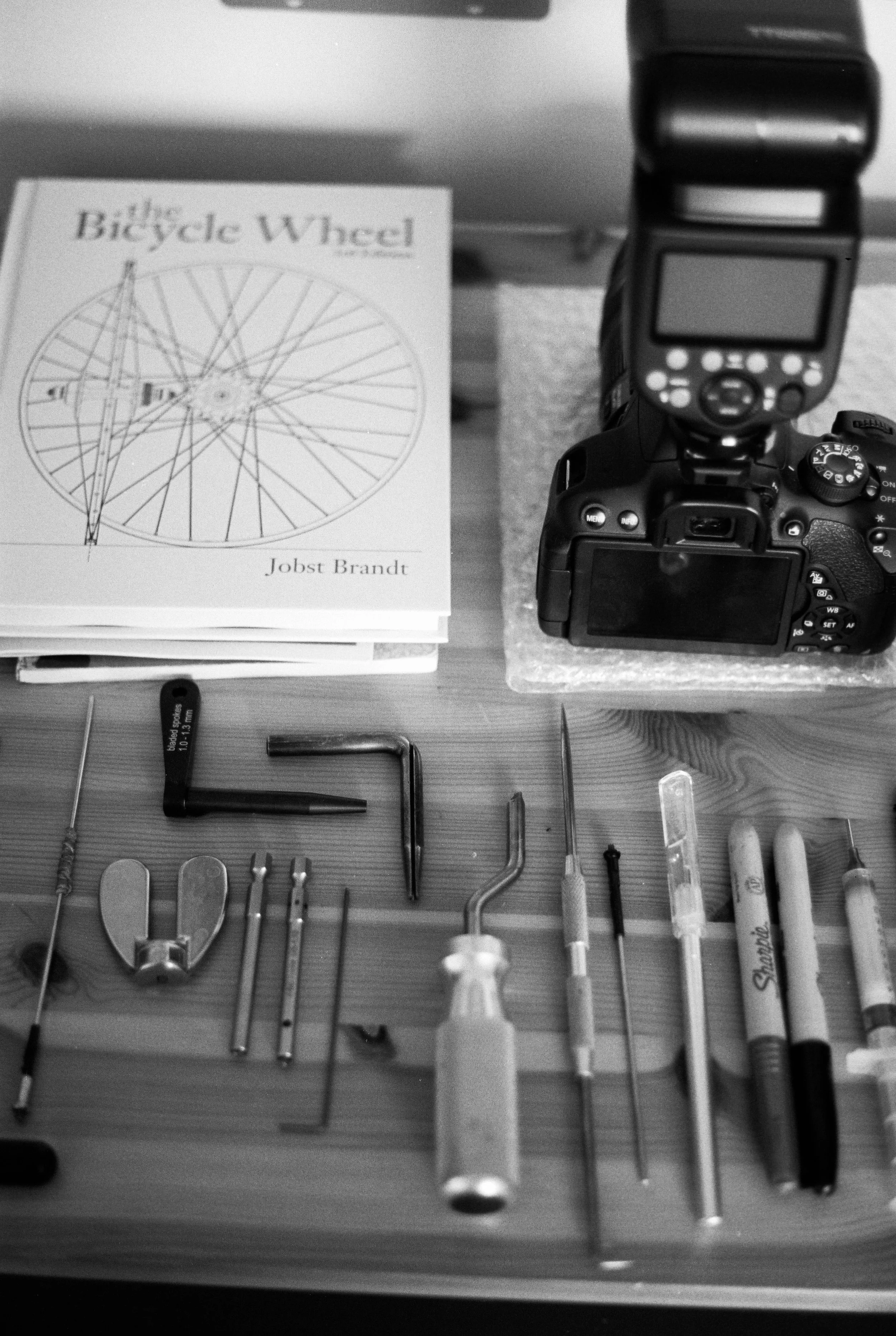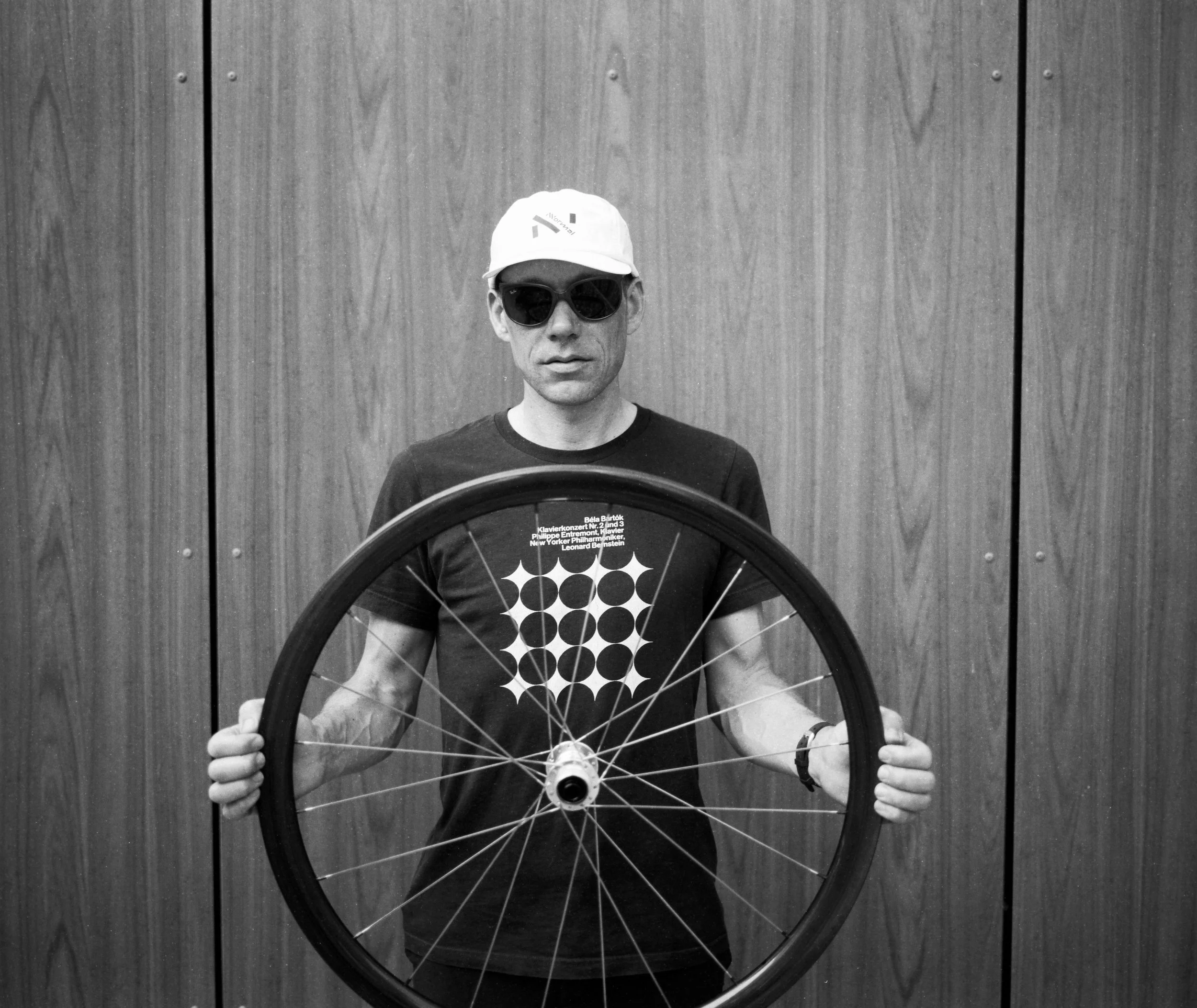Wheelbuilder | Justin Spinelli
Justin Spinelli raced professionally in Europe during one of the most turbulent and transformative eras in cycling. He survived the Giro d’Italia as one of the youngest riders in the field, and rode for Saeco—the media powerhouse team perhaps best known for Mario Cipollini. But before all that, he was a teenage bike mechanic in New Hampshire, building wheels after hours at his local shop. Today, he’s the founder of Luxe Wheelworks and Gruppo Spinelli, where he brings decades of riding, mechanic work, and racing experience to the craft of bespoke wheelbuilding. We spoke with Justin about his rise through the pro peloton, his obsessive approach to building wheels, and how personal loss, burnout, and mental health struggles ultimately shaped the philosophy that guides his work today.
Tell me about the early days—how did your path in cycling begin?
I started as a mechanic before I ever saw myself as a racer. I was terrible at first—clumsy with tools, unsure of process—but I was determined. I pleaded my way into a job at Goodale’s, one of the biggest bike shops in New England, and I stuck with it. I was still a teenager when I built my first set of wheels—Mavic rims and Shimano hubs—for a mountain bike race. I rode them to second place at a Junior World Cup. After that, I never stopped building.
And then came racing.
Once I started racing seriously, things accelerated. I made the U.S. National Team and was selected for a six-day pro-am in Germany. That led to a spot at the World Championships in the Netherlands. I didn’t podium, but I proved I could compete. That same season, I finished second at U23 cyclocross nationals. From there, I bounced between domestic teams and European trade squads until I got signed by Farm Frites—TVM’s successor—and eventually Saeco.
That was a wild time in cycling history. What was it like racing in that environment?
It was brutal. I did the Giro d’Italia when I was 20. No one on the team really supported me. They didn’t expect me to finish a stage. But they gave me the opportunity and I kept finishing. I wasn’t put on EPO yet and it was just immensely painful. Eventually, I asked to leave mid-race—I couldn’t get my heart rate over 150. I was exhausted. After that, the team fell apart due to a sponsorship shift. I thought my career was over.
But it wasn’t. You ended up on Saeco.
Total fluke, almost. The team manager, Claudio Corti, brought me in after seeing something in me I guess. My aunt, who speaks beautiful Italian, advocated for me, speaking with him at length. When I was given the offer, they asked why I was showing no emotion. I was in complete disbelief. It was like signing with the Yankees. Saeco was media-savvy, dominant, and full of big personalities. I earned my second contract there, which is a big deal in pro cycling. Anyone can get a first-year deal; a second one means you’ve proved yourself. But the following season, I came in overtrained and burned out. By summer, it was clear I wasn’t coming back.
When did the idea of Luxe Wheelworks take shape?
I always knew I’d stay close to the bike world. I started selling niche European components through a company I founded called Svelte Cycles in 2006. Eventually, I realized I didn’t want to just resell other people’s stuff—I wanted to make something myself. I didn’t want to be a framebuilder, but I’d been building wheels since I was 15. That made sense. So I leaned in, learned how to build with carbon, and started Luxe in 2010 with the goal of making the best bicycle wheels I could.
What makes a Luxe wheel different from a factory wheelset?
Everything I’ve done—racing, mechanic work, listening to riders—goes into each build. It’s not about specs on paper; it’s about how the wheel feels beneath a specific rider. I do my best to control every detail: spoke count, spoke type, lacing pattern, rim selection, tension, finish. I keep records of every spoke tension reading for every build. I have tolerances. I know how each wheel was made, and why. That level of care doesn’t exist in mass production.
Who are your customers?
People who ride hard and want something they can trust. Not just racers chasing marginal gains—though I get those too—but riders who want a product that reflects them. Something made by hand, with intention. I think about it like a custom frame. It fits your style, your goals, your terrain.
How has your relationship to cycling changed over the years?
It’s become more personal. Racing was about suffering. Wheelbuilding is about control. I’ve struggled with mental health since I was 19, and cycling helped—but also hurt. There were years I felt burned out, broken, done. I’ve learned that for me to keep doing this, it has to be on my terms.
You mentioned the death of a friend as a turning point.
A friend of mine who’s been part of the Boston Area cycling scene for years spent his whole life dreaming of retiring in Spain and riding every day. He got there, and within a month, he died on his bike. That shook me. I went to the memorial ride, and I saw all these people I used to race with—many of whom had started shops or brands of their own. I realized I couldn’t keep spending my energy building someone else’s dream. I had to build my own again.
So where do you want Luxe to go from here?
I’ve got a three-phase plan. Honestly, if I make it to phase two—quitting my day job and sustaining myself through wheelbuilding alone—I’ll be happy. I just want a dedicated workspace, enough orders to pay myself, and time to do the work right. That’s it. I don’t need to scale. I just want to build the best wheels I can, for people who care.
Justin Spinelli is the founder of Luxe Wheelworks. He lives with his partner in Cambridge, Massachusetts and enjoys riding bikes.
Conversation transcribed and condensed by Chessin Gertler | Photography by Chessin Gertler





